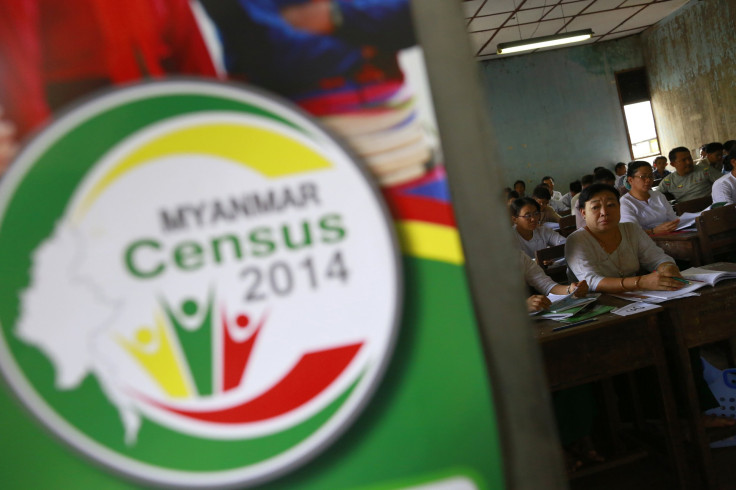Myanmar's First Census In 3 Decades Finds Population 9M Lower Than Expected

Myanmar has 9 million people fewer than previously thought, according to a census conducted in March and April, Agence France-Presse, or AFP, reported Saturday.
Based on extrapolations from the country’s last census, conducted in 1983 under the former military junta, the population of Myanmar was expected to be around 60 million. However, the recent census estimates the population at 51 million -- a shortfall of nine million.
“The provisional result of the population in Myanmar is 51,419,420. The female population is 1.7 million more than the male population,” Burmese immigration minister Khin Yi reportedly said at a press conference Saturday.
Khine Khine Soe, an immigration ministry director, said that since the earlier estimates were based on the population growth rate at the time, a decline in birth rate may explain the deficit. She also added that nearly 1.2 million people living in conflict-ridden Rakhine, Kachin and Karen states of Myanmar had not been counted in the census.
“We left these areas so as not to harm stability... Even 30 years ago, not all regions and villages were included in the census because of conflicts,” Khin Yi reportedly said. It is estimated that a number of people missing from the current census are Rohingya Muslims, who live mostly in the western Rakhine state.
Although the United Nations, which helped Myanmar with the census, had asked officials to allow all Burmese people to choose their own ethnicity, nearly 800,000 people belonging the Rohingya Muslim community were reportedly not allowed to do so, according to a BBC report.
The Burmese government has long claimed that the Muslims in Rakhine are illegal immigrants from Bangladesh. In the recent years, this has resulted in frequent and violent clashes between the majority Buddhist and the minority Muslim population in Rakhine, killing hundreds and displacing thousands of people.
The census has reportedly been criticized by activists in Myanmar over inclusion of questions related to ethnicity and religion, which, they say, have the potential to spark unrest in the country.
The complete results, which will include detailed demographics based on religion and ethnicity, are scheduled to be released in May next year.
© Copyright IBTimes 2024. All rights reserved.






















